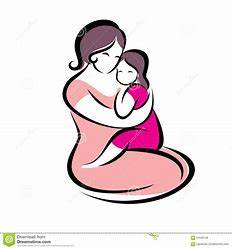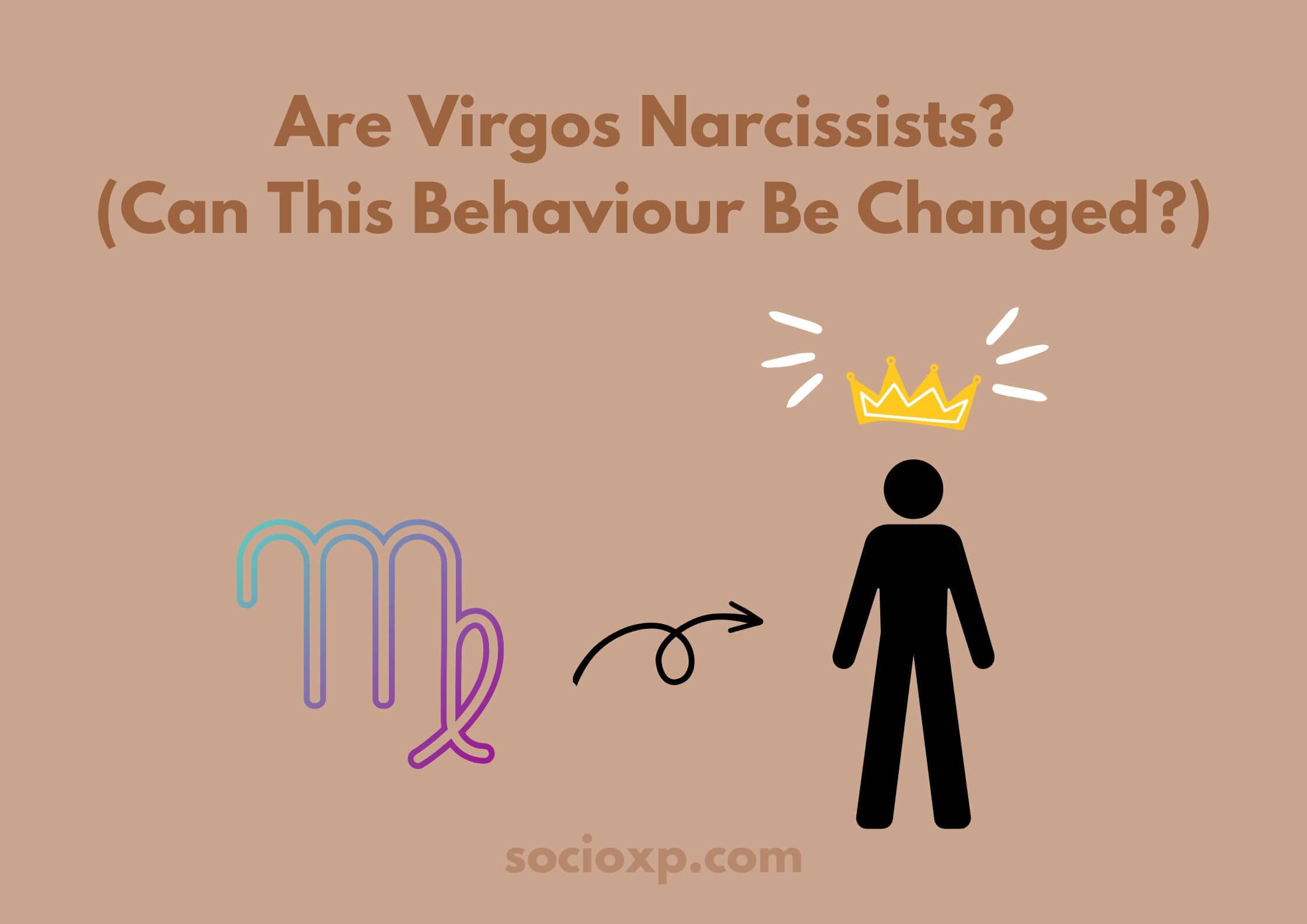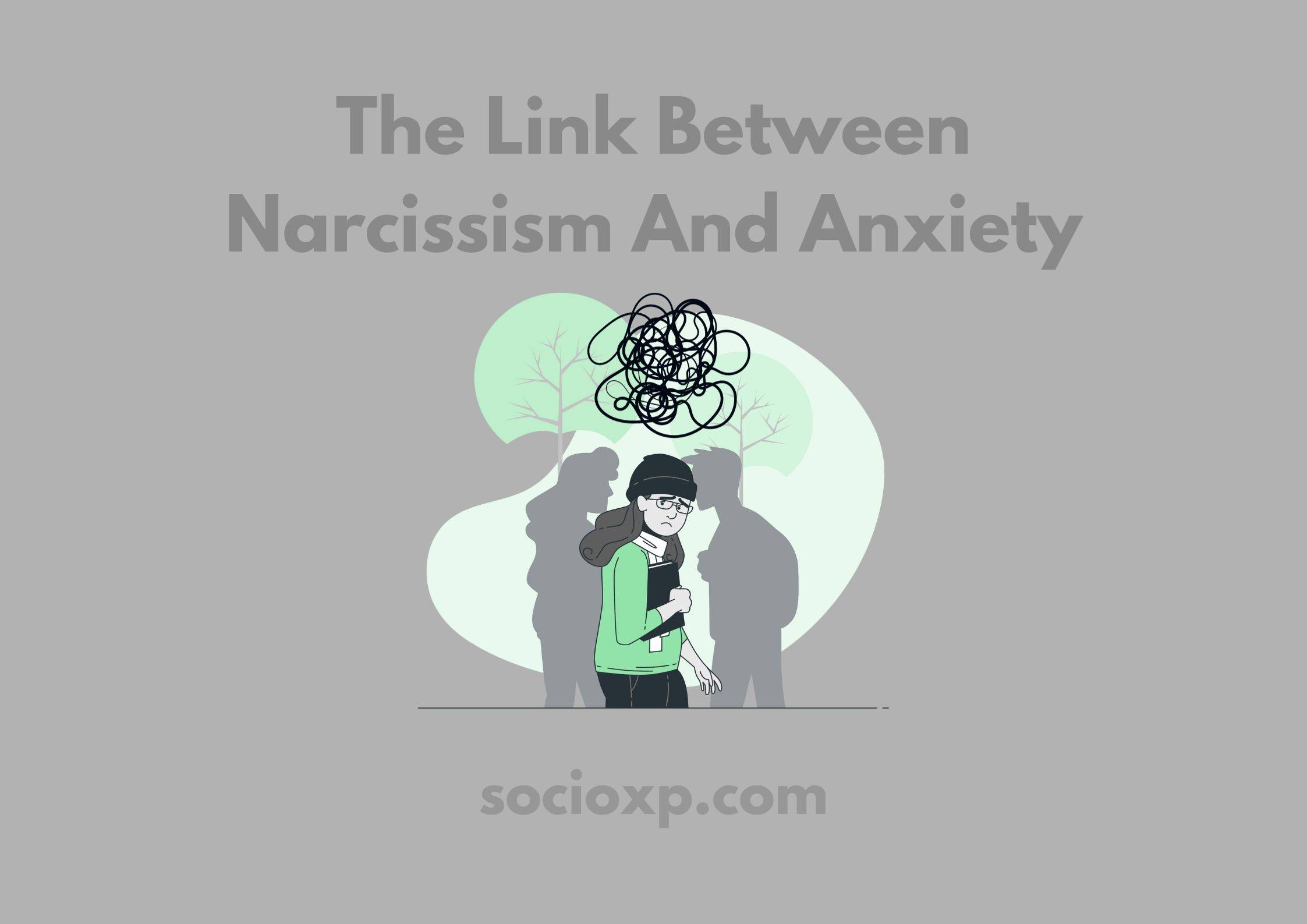The Effects of a Narcissistic Mother on her Daughter (Can They Be Cured?)
Can a mother-daughter bond be toxic? Yes, it can be if either of them has a toxic personality, especially narcissism. So here, “The Effects of a Narcissistic Mother on her Daughter” will be discussed along with some ways to find solutions for this.

When you hear the words mother and daughter, what picture do you get in mind? You always picture a sweet loving and caring mother, who teaches her daughter about life, lots of laughter and giggles, from sharing makeup to sharing clothes and much more. You always picture a bond where mothers are compassionate, warm, and tender with their daughters. But have you ever come across a toxic mother-daughter bond, like Cinderella and her stepmother? Though it was fiction, there can be such a toxic mother-daughter bond in reality too.
Before understanding in depth about toxic mothers, let us get to know what is a toxic relationship in general.
What does a toxic relationship or a toxic bond look like?
To understand the true meaning of a toxic mother-daughter bond, it is crucial to know primarily about the term toxic relationship or toxic bond.
A toxic bond or a toxic relationship is where your mental health, emotional health, and overall well-being are compromised. You do not know what a healthy relationship looks like. In the case of toxic parents, the toxicity is not intentional, but it is ingrained in their parenting. Sometimes parents have an inferiority complex over their children, they do not realize this and they keep on torturing their kids.
Sometimes parents unintentionally become toxic and interfere in your life, more than the required amounts as they wish to protect you from the evil world. But they do not realize that they are making the child’s life even more difficult than the rest of the world. Toxic relationships are where no boundaries are understood, and there is a lack of warmth. There are manifestations of selfishness, egotism, poor communication, and a lack of tenderness and empathy.

Toxic relationships can exist between romantic partners, friends, work colleagues, and even family including parents. Yes! To your surprise, there can be a toxic bond between children and parents, which is unhealthy and harmful for children, especially a toxic bond between a mother and her children.
Children and mothers have an inseparable bond, as a mother plays a crucial role in a child’s upbringing. Narcissistic parents leave a deep impact on their children, as they lack emotional bonds, their love is conditional, achievements are more important than their child, their needs are a top priority than their child’s, no arguments only agreements without knowing the problem, and much more.
So how do you know if you have toxic parents, especially toxic mothers? Let us know some traits of toxic mothers below,
Signs of a toxic Narcissist mother
- Can be rude and often would not understand your point of view.
- Arrogance and anger is their primary reaction to any of the problems whether caused by you or not.
- They often blame you for many things and would consider you the root of all problems.
- She would hate changes and also cannot handle them well.
- She lacks sensitivity and empathy.
- Narcissistic mothers are emotionally unavailable.
- She is self-centric.
- She is mean when her ways do not work out.
- She is always blaming other family members whenever something goes wrong.
- She is verbally abusive.
- She lacks self-awareness.
- She is never satisfied and always expects more from others.
- She is unable to maintain healthy relations.
- Narcissistic mothers are highly competitive, and she keeps on comparing you to others of your age and also devalue your achievements.
- She is easily irritated by your smallest of mistakes and has drastic mood changes and shifts.
- She takes advantage of others for her own well-being and also teaches you the same even at the cost of someone else’s major compromises.
- She is unable to take criticism well.
- Most of the time she neglects her responsibilities like house chores, cooking, cleaning, and even her kids.
Definitely, you cannot choose your parents, but you can always choose the way you want to behave with them and also the same can be reciprocated for you. You might be here if you are really curious to know some toxic traits of a narcissistic mother, how to deal with a narcissistic mother or if is there a way that a narcissistic mother may change her behavior and approach towards her children, especially daughters. Let us find out further.

Do Narcissistic Mothers Hate their daughters?
Hate is a strong word, and it is not appropriate to describe a narcissist’s feelings for their children. A narcissist usually would love their kids except for the matters where the narcissist’s grandiose image is put on-line or in shame. Narcissists do not hate their kids, but they are definitely biased toward them. If a narcissistic mother has two kids, there would be a constant battle between them to procure their mother’s love, attention, and care. Narcissistic mother has different parenting methods than traditional one which involves love, care, and tenderness along with strictness.
A mother’s love is unconditional and infinite. But with a narcissistic mother, their love becomes conditional and transactional. When you follow her footsteps and do according to per wish, they would be happy and provide you with all the attention that you would want as a child; but this starts fading away as soon as you do not follow as she says, do not have achievements as she wishes and do something to hurt their image than their love starts depreciating.
Thus their relationship can be transactional, as long as you provide her with what she desires, you would receive her love, care, and ideal parenting, but as soon as you disappoint you might have to face some consequences like her rage and embarrassment in you.
In such cases, children of such narcissistic mothers would lack confidence, would be constantly feared, have low self-esteem, lack care, and love, would feel depressed and neglected, would always have the urge to attain perfection to get validation, and would mostly be prey to narcissism knowingly or unknowingly, willingly or unwillingly.

What are the Effects of a Narcissistic Mother on her Daughter?
Let us look at some of the Effects of a Narcissistic Mother on her Daughter; as the daughters are impacted deeply by such behavior of their mother and these few traits may have been inscribed into their children’s behavior too! Let us keep reading further.
1. Always in constant need of approval and praise
Having a narcissistic mother has an adverse effect on children, especially daughters. Narcissistic mothers always want their daughters to seek their approval and permission before making life decisions. This habit of theirs affects their children and creates a habit in them of always seeking approval and praise from others. They feel a constant need of seeking approval before making any decision as they have never been allowed to do so before.
2. Lack of confidence
Narcissistic parents will always try to impose their ideas on their children. The moment the child says or tries to do something on their own; they will either ignore them or will try to sabotage the situation and not listen to the child’s idea, instead forcing their own ideas on the child. This discourages the child and makes them under-confident.
Narcissistic parents have a tendency to never approve or mock their child’s idea, as they think a child should always act as they as. The children of such parents lose self-confidence as they do not have supportive parents. Narcissistic mothers never support any idea of their daughters, while a son’s idea is always appreciated.
Narcissistic parents always try to impose their ideas on their children, and always keep on saying,
- You can do better than this!
- Try better next time!
- Look at that kid’s performance, you are nowhere near!
- When I was young I used to be so much better than you!
These kinds of statements break a child’s confidence, making them less confident; always doubting their own decisions and ideas. This discourages the child and makes them under-confident.
3. Has the urge to attain perfection to get validation
Narcissistic children inherit narcissism from their parents, thus gaining all their narcissistic traits from them. One such trait is always seeking validation from others and trying to prove their worth. Always trying to prove they are perfect in whatever they do and others should appreciate them all the time. As a narcissistic mother is never satisfied with their daughter’s decisions and choices, this forces their daughters to always achieve the highest in whatever they do near to perfect and always get other people’s validation.

4. Has difficulty expressing themselves
Children of narcissistic parents find it difficult to put their thoughts with confidence. They often hide their feelings or always suppress them as they know no one would be there to listen to them. Such children are punished when they express themselves, they always get a nodding no head for whatever they want to do or say, thus making it difficult for them to open up in front of everyone.
5. Has low self-esteem and always living with insecurities
As their worth is never given enough credit, NPD(Narcissistic Personality Disorder)children or children of Narcissistic parents have very low self-esteem and are insecure about what others would think of them. As they were never given enough credit or praise for expressing themselves openly while growing up, they are unsure about their self-worth. Narcissistic parents always fear that their children might bring them shame, so they never allow them to do anything freely without their consent.
6. Has trust issues
NPD(Narcissistic Personality Disorder) children have trust issues due to their narcissistic parents, due to which they are unable to trust others or even their own self. Narcissistic parents would barely have any input for you when they have no interest in what you are saying plus they would even degrade your idea-making. This makes you a shallow person. They would ignore or not attend any conversation that might create intimacy. Manipulation, ghosting, and gaslighting are common traits of a narcissistic parent.
7. Forms Toxic relationships with people
Children brought up by narcissistic parents, especially daughters who do not have a supportive mother tend to have toxic relations while becoming adults. Childhood trauma of NPD(Narcissistic Personality Disorder) children have toxic relationships with their partners, unhealthy relations with friends, and attachment issues. The effect of a Narcissistic mother on her Daughter will also affect her daughter’s relations with their partner and also their offspring. Children cannot even expect deep meaningful conversations from their narcissistic parents.

8. Are manipulative
Manipulation, ghosting, and gaslighting are common traits of a narcissistic parent. They also manipulate their children. Same way NPD children also grow up to be manipulative adults. Some examples of manipulative adults who have grown under the influence of narcissistic parents are,
- Exaggerating lies and relying on lies to establish relationships
- Being a control freak in a relationship
- Always doing what you like
- Not being supportive enough when your partner needs you
9. Cannot take criticism well
NPD(Narcissistic Personality Disorder) children cannot take criticism well. They might crack mean jokes, might also expose all your secrets, or might use you as an imaginary punch back with their humiliating punches in the face if you criticize a narcissistic kid. A Narcissist can be as direct as possible, they even might point fingers at you and might also call you names.
10. Have Mental health issues
NPD(Narcissistic Personality Disorder)children or children of Narcissistic parents have mental health issues like depression, anxiety, social behavioral issues, bipolar personalities, panic attacks, anger issues, arrogance, anger outbursts, health issues, sleep deprivation, and eating disorders. They lack sensitivity and empathy. They always need praise, appreciation, and entitlement.
Can Narcissism be Cured?
Though there is no such cure that can help to cure permanently. But there are some ways that may help to reduce its impact on a person’s life. The degree of narcissism can be narrowed down to some extent. Also, it totally depends on the individual to have that willpower, motivation, and wish to be cured.
Narcissists are rigid and cannot just accept the fact that they can have some fault. They constantly deny and refrain from acknowledging the fact that they need to be cured of something, and that to something psychological. They do not accept the fact that they are flawed in some way. They would adjust and deny the fact that they can create trouble for others due to some psychological personality disorder. Narcissists consider themselves as these perfect, flawless, and amazing individuals who cannot be hated by others and who also do not require any sort of intervention to get better in the first place.
Can the daughters suffering due to their narcissistic mothers be Cured?
There is not a specific cure for a person to heal and recover from the torture of narcissism yet. But a strong-willed person can be healed. There are a few ways that can help out a person get cured of the abuse and let go of the underlying feelings, but those ways can differ for each individual. But once someone decides that they wish to be healed, then there is no turning back. There are various approaches to getting healed and getting cured, which are mentioned below,
Seeking Therapy
Seeking therapy from mental health expert professionals can help the daughters let go of their fears and insecurities and open up gradually. A therapist may be able to make the daughter feel that they are great and enough as they are and they do not need to seek validation from others. They can help the daughters to develop self-esteem, confidence and let go of their insecurities of being perfect at everything they do. Therapists can gradually help the daughters to move toward the healing process.
Learning to build self-confidence
Motivating themselves into self-care routines, promoting their mental health, and practicing compassion for themselves are some of the ways that can help boost self-confidence which also helps in increasing self-esteem. Only allowing positive people and thoughts may ensure that no negativity is entering one’s life. Surrounding oneself with people who can provide emotional and mental support like family members, friends and anyone who can help oneself to heal is also one excellent idea.
Letting go of the past and traumatic experiences
The best way to overcome or heal from some traumatic experience is to let go of the bitter, toxic, and leftover feelings. Working on self-care and taking care of one’s well-being is the biggest way to support oneself to overcome traumatic experiences.
What are some ways to cope with trauma?
- Learning about your true feelings, keeping aside all the false facades that you have created, and acknowledging them can be the initial step.
- Look after your physical health with the help of exercises, yoga, meditation, and any form of physical workout.
- Look after your mental health with the help of meditation, reading good books, by seeking help from your loved ones, listening to music, and doing more things that keep your interest at its peak.
- Give appropriate time to yourself to heal internally; do not force healing upon yourself.
- Learning new skills, meeting new people, and visiting new places also play a crucial role in freeing yourself from narcissistic characteristics.
Important Takeaway
It is important to note that every traumatic experience can be healed and you have the strength to overcome them. “Every cloud has a silver lining”, in the same way, you can overcome and heal from all bad experiences so never give up on yourself, and do not lose hope.
Definitely, you cannot choose your parents or the way they treat you, but you can always find ways to defend yourself and create healthy boundaries. Healing requires self-care, self-compassion, and a lot of patience. be patient with yourself and do not rush the healing.
- How To Make A Narcissist Discard You And Leave You Alone? - March 21, 2024
- Narcissistic Supply: 9 Signs You May Be Someone’s Narcissistic Supply - March 11, 2024
- Narcissistic Abuse And Anxiety – 11 Symptoms of Narcissistic abuse-induced anxiety - March 9, 2024


